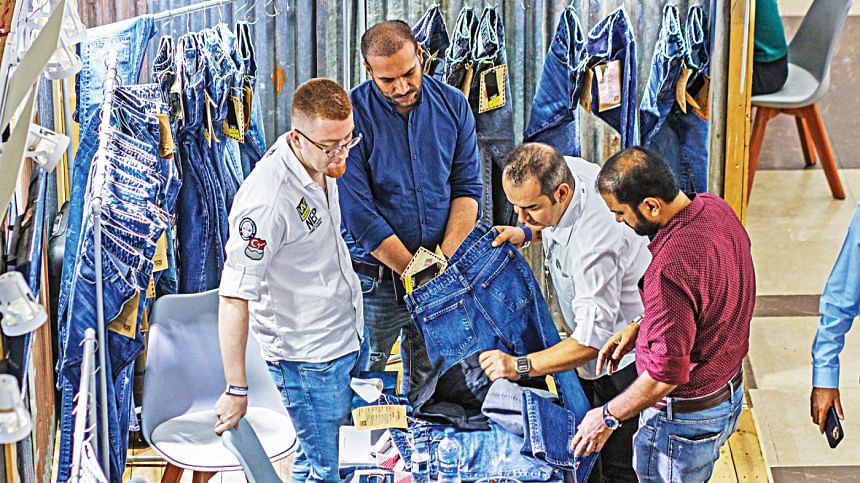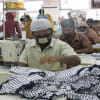Apparel retailers express concern about shipment delay

International clothing retailers and brands yesterday expressed concern about the timely shipment of goods following the latest spell of violence stemming from the quota reform movement, imposition of curfew and five-day internet blackout, which crippled economic activities.
In light of the situation, retailers urged leaders of the Bangladesh Garment Manufacturers and Exporters Association (BGMEA) to ensure timely shipment of goods to be sold during the Christmas season.
They also demanded that the government quickly restore high-speed internet and broadband services to allow quick communications with their headquarters abroad.
They made the demands at a meeting with BGMEA leaders at the trade body's office in the capital's Uttara.
Although it was a regularly scheduled meeting between the BGMEA and buyers, important issues came to the fore due to the recent crisis.
For example, buyers called for addressing the backlog and congestion of containers at the Chattogram and Benapole ports so that export activities could run smoothly, according to a senior BGMEA leader who was present at the meeting.
Their concerns had been compounded by the fact that factories faced a complete shutdown for four days, especially as the months of July, August and September are the peak time for the shipment of goods to be sold during Christmas, the biggest retail sales extravaganza in the Western world.
It is also the peak time to confirm the prices of goods to be shipped next summer and spring.
The disruption in production, delivery and shipment took place at a time when Bangladesh's exports were trending downwards.
Overall exports declined from $39.69 billion in the July-May period of FY23 to $37.35 billion in the same period of FY24, according to data from the Bangladesh Bank.
In the same period, Bangladesh's garment shipments fell 5.2 percent to $33.04 billion.
At present, many garment factories cannot continue timely production due to a lack of raw materials like yarn, which could not be transported to factories because of the volatile situation over the past week.
Furthermore, suppliers had to cancel hundreds of pre-scheduled meetings and factory inspections over the past week.
Almost all the major garment sourcing companies were present at the meeting, including representatives from retailers like H&M, M&S and Bestseller.
They expressed concern about difficulties transporting goods as well as shipments from Chattogram port while also lamenting the slow internet speed, which hindered communication with their headquarters.
After the meeting, BGMEA president SM Mannan Kochi said retailers and brands assured them that they would not seek discounts or air shipments or cancel work orders.
Kochi added that production had resumed at factories while internet services and port operations were restarted after meetings with the prime minister, ICT minister, home minister and shipping minister over the last few days.
The BGMEA chief also said retailers were a bit worried as they want fast internet and smooth operations in ports.
The garment sector incurred production losses amounting to Tk 6,400 crore during the four-day shutdown. Additionally, Tk 1,000 crore will have to be paid to workers although there was no production in the units.
Kochi urged the government to keep the garment sector out of the purview of curfews or any kind of political activity considering the importance of the sector.
Last week, Mohammad Ali Khokon, president of the Bangladesh Textile Mills Association, said the primary textile sector, which includes spinning, weaving, dyeing and finishing activities, lost $58.8 million in six days due to the shutdown and internet blackout, which is about $9.8 million per day.
Although buyers are not cancelling work orders or seeking discounts, they are putting a pause on work orders or delaying them, which is creating a stockpile of yarn and fabrics in mills.

 For all latest news, follow The Daily Star's Google News channel.
For all latest news, follow The Daily Star's Google News channel. 








Comments